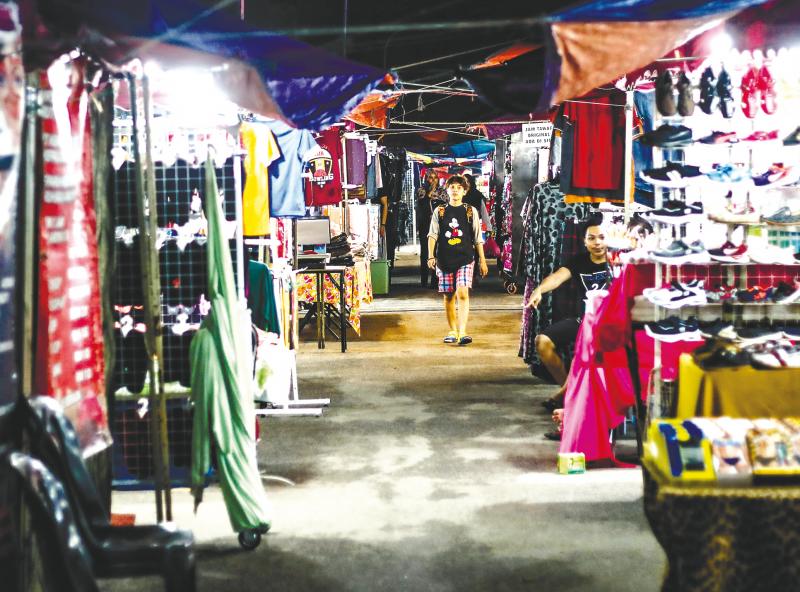PETALING JAYA: Digital cameras killed their film predecessors. Music downloads consigned the records and CDs to the rubbish heap.
Just like how technology has changed things around, online shopping is slowly but surely taking business away from petty traders.
More people, especially the young, are now buying everything from T-shirts to trinkets at Shopee, Lazada and Zalora rather than from the “uncle” or “pak cik” at the pasar malam.
This has cast a gloom over those whose livelihood is dictated by purchases at morning or night markets, where everything – from fish and prawns to toys and hairbands – are sold.
In a country of 32 million people, Malaysia has about 1.5 million hawkers and petty traders – people whose entire livelihood revolves around the small business they run at open markets early in the morning or late at night.
Some start work as early as 3am or 4am to prepare to serve the early morning crowd rushing to have a hearty breakfast before buying the freshest meat at the wet market.
Others trade at night markets, or pasar malam, following a schedule dictated by local authorities.
Night or day, these makeshift trading spots are a blend of flavours, odours and sights, and a cacophony of traders and buyers bargaining over prices.
They attract people by the hundreds, if not thousands, such as the Taman Connaught night market in Cheras, Kuala Lumpur.
This is where children get their sweet delicacies while their parents look for new “baju raya” for them, or where homemakers pick up what they need to prepare dinner for the night or lunch the next day.
The one thing going for these markets are the prices.
Items here cost less than at a supermarket.
However, the night market may soon see its best days behind it.
The sale of non-food items, such as knick-knacks, clothes and trinkets, previously the mainstay merchandise for many of the night traders, is on the decline.
“People can now buy these items online,” Subang and Petaling Jaya Night Market Hawker Association chairman Wong Fook Chue lamented.
“We still see some young people come to the night market, but they mostly go for food items, ignoring stalls that sell other items,” he told theSun recently.
As a result, traders at night markets are now experiencing inconsistent income while they struggle to keep up with market demands.
And that is not even taking into account the rainy nights, when it is not possible to set up their stalls.
Wong Chee How, who sells salted egg products at night markets, said his revenue drops 50% on rainy nights, but his stall stays open.
“Better to earn a bit than nothing at all,” he said.
But he remains optimistic.
“As long as you can see an opportunity, and you can adapt easily, you will survive.”










